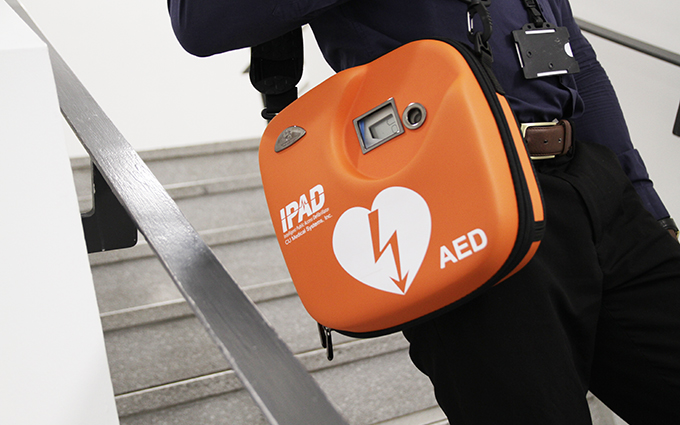Wednesday 12 October, 2022: St John welcomes the final ambulance service, London Ambulance Service (LAS), to The Circuit. This landmark moment means for the first time all 14 ambulance services across the UK are using the same defibrillator database.
There are more than 30,000 out-of-hospital cardiac arrests every year in the UK, but fewer than one in ten people survive. Immediate CPR and defibrillation can more than double the chances of survival - however public access defibrillators are used in less than one in ten cases.
Hoping to help improve cardiac arrest survival rates, our charity, British Heart Foundation, Resuscitation Council UK (RCUK), and Association of Ambulance Chief Executives (AACE), have come together to roll out a national defibrillator network, The Circuit.
Its aim is to map all public access defibrillators, so when someone has a cardiac arrest, 999 call handlers can direct bystanders to the nearest registered defibrillator while they wait for the ambulance to arrive. Nearby defibrillators can now also be found more quickly and checked they’re ready for an emergency.



